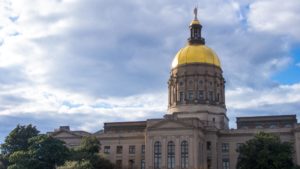
Op-ed: Less HOPE for those who contribute larger share of their income to the lottery
The Atlanta Journal-Constitution features GBPI Deputy Director Taifa Butler’s Op-ed on HOPE’s shortcomings and the necessity of HOPE reform.Read the Essay.

The Atlanta Journal-Constitution features GBPI Deputy Director Taifa Butler’s Op-ed on HOPE’s shortcomings and the necessity of HOPE reform.Read the Essay.

As posted in the Atlanta Journal-Constitution Posted by Taifa Smith Butler Georgia’s commitment to graduate 250,000 more college students by 2020 is a worthy goal — and a necessary one if the state wants to remain competitive in an economy

Essig, Johnson: HOPE, pre-k need sustainable path As published in Athens Banner-Herald Understanding the realities of lottery funding in Georgia is as simple as a word problem in math class. Take a look: Train A departs Hope City station at

Athens Banner-Herald Reporter Lee Shearer features GBPI Policy Analyst Cedric Johnson’s new report, HOPE on a Tightrope: Maximizing Lottery Funds to Yield the Best Education Return. Read the full article.

FOR IMMEDIATE RELEASE ATLANTA (February 7, 2012) – The lottery funding model is broken. HOPE Program expenditures outpace lottery revenues and are expected to increase while lottery revenue growth is expected to flatten. The Georgia Student Finance Commission projects that

The Georgia Lottery has provided more than $13 billion toward education programs in Georgia. The program has enabled more than 1.4 million students to pursue higher education through the Helping Outstanding Pupil’s Educationally (HOPE) Program and provided 1.1 million four-year-olds access

Policy Analyst Cedric Johnson is quoted by Jamie Gottlieb of redandblack.com, an independent student newspaper serving the University of Georgia Community. Read article.

GBPI Policy Analyst Cedric Johnson is quoted on the HOPE shortfall. Read full article.

Paying for college has often been a deal-breaker for many individuals desiring to pursue a post-secondary education. Georgia has long looked to its prized HOPE program as a resource for helping Georgia students finance a college education. While HOPE has

The FY 2012 budget allocates $650 million in total funding for programs that provide financial assistance for post-secondary education. The majority of the funding is provided by state lottery games. Download the PDF.
Submit public comment on Georgia’s Pathways to Coverage program extension by February 20th – just complete this easily fillable form: